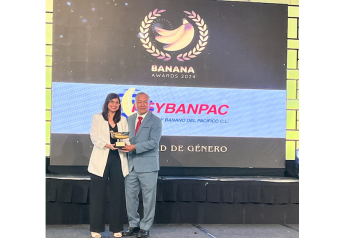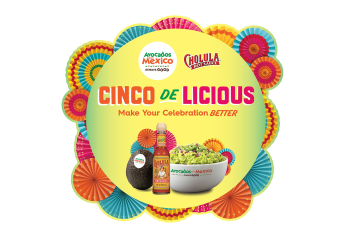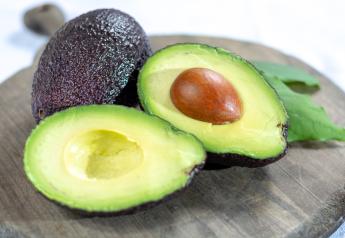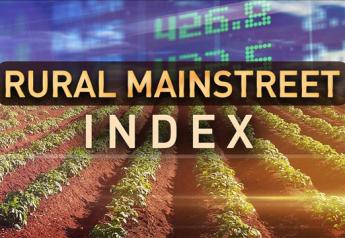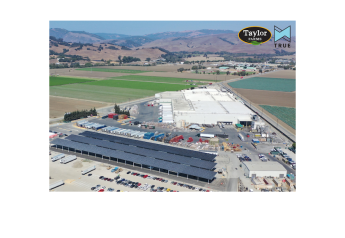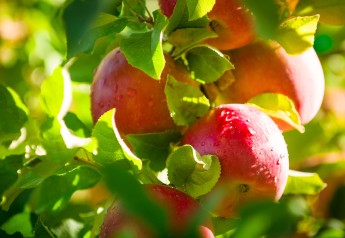Top produce trends for 2032

This time of year, there are multiple versions of “top food trends” stories for 2022. And why not? The future is always a more alluring topic than the gritty present.
In that vein, but with even more ambition, I put a question to the LinkedIn Fresh Produce Industry Discussion Group asking about their views on what the produce world will look like in 2032.
Here is the question and selected responses from the group. Remember, you heard it here first!
How will the fresh produce industry evolve over the next 10 years? How will the industry look different then compared with now?
- "Branded produce will dominate, as sophisticated producers learn how to reach tomorrow's consumers via new marketing and distribution channels that are currently in their infancy or don't even exist yet. Emerging technologies will create tremendous efficiencies for small/medium size growers, leveling the playing field and allowing them to compete with large multinationals. Growers that embrace sustainable and regenerative farming practices (and effectively share that story with their customers) will have first-mover advantage over others that choose a "wait and see" approach. Finally, large corporate buyers will try to get closer (invest/own) to the farm supply chain as they have with meat and milk.";
- "I believe we will see a more regional focus on produce programs, to reduce overall food miles.";
- "I think we will see more branded produce driving value through unique marketing and sustainable initiatives. “Nice to haves,” such as compostable packaging and Fairtrade certification, will become “must haves.” Tomorrow’s consumer is far more savvy and the onus will be on brands to deliver that value.";
- "There will be more localized investment in the farming sector. Pegging this on importers investing directly on the farmer within and outside borders. It's time exporters found a way to not only stay afloat, but offer better options for both their customers and farmers.";
- "Consumers want to buy the story behind the produce. Where it was grown and how. How and when the produce was shipped. The beef industry has managed this quite well with a description of the beast, where it was raised, how long on grain, etc. The advertising campaigns in Japan have focused on the countryside, etc., where the cattle were raised. The wine industry has done the same — sell the story first. The same can be done with fresh produce, and grains show the product growing, being processed and, ultimately, (going) to the table. Consumers want to know that the product is fresh and how it was grown. I think, for some consumers, this will also change the price point of what they are prepared to pay.";
- "Supply chain will break into several pieces so that people have more control over their last mile and do not get shortages like the past year. You will see Amazon, DoorDash and Uber enter the foodservice industry. Several people will fold, merge or sell off over the next year. A new organization will form within the industry owned and controlled by the grassroots that will lead the industry to new frontiers. There will be a huge shift away from California growing to Mexico and other areas (because) of water, trucking regulations, labor and these government mandates. More (individually quick-frozen) products, as that industry will continue to evolve and serve as some cost relief for some produce items. Sad reality, but it was already moving that way.";
- "Advances in (controlled environment agriculture) will usher in a new level of localized produce. More production, more variety, more freshness. Less chemicals, less miles, less packaging.";
- "Sustainable salad containers";
- "How many weeks of the year do you see at the store English garden peas ... in pods? Peas moved to the freezer section and cans long ago when the processes were mechanized. I think the items that cannot hold up to mechanized processes will fall by the wayside like fresh peas. As the skill of cooking goes the way of sewing, we will have more and more food analogs, like those things that call themselves “milks” but have, like, a six-month shelf life. Oh, yeah, to my protein analog friends, could you guys do lobster claw meat or crab meat? I mean, give me a $4 lobster roll and a $2 crab cake, then we can talk. Or $1 caviar specials for happy hour. By the way, I'm not interested in a more expensive "attribute burger" or nugget to pump your stock valuation so your venture capital partners can flip their options. Future of produce may be moving like my rant. Will we remember when vehicles ran on gas and you actually bought plant parts at the store to convert into food?";
- "Remember when we were all going to starve to death and aquaculture was going to save humanity? Now, everyone disses farmed fish and raves about wild caught. Will produce be like that? I mean, the cauliflower rice will be from sheets of laboratory/factory-produced substrate chopped up by 3-D printers? The dairy analogs are exactly that.";
- "More tech in different areas, including new varieties that remove seasonality, more use of data, more consumer-focused, more local, more vertical farming, more sustainable. Can you imagine a future where farmers will sell and market their produce directly to consumers? Would love to hear some more thoughts.";
- "There will be more sustainable-packaging advances for certain. Technological advances in transactional business models that will help with ease of doing business and real-time data. But, conversely, there will be decreases in person-to-person contact.";
- "New technology, both for preharvest and postharvest, new developments in varieties, seeds focused on freshness, shelf life, flavor and convenience (size/weight).";
- "New packaging technology, materials and products, more sustainable, suited for online trade.";
- "Durable new varieties, like melons, citrus, broccoli, onions, carrots, will load origin rail on shuttle-refrigerated containers by rail to destination transloading distribution centers by rail with 5-day travel time. Perishables like lettuce and leaf vegetables will still use origin to destination national truck-refrigerated carriers.";
- "Autonomous trucks, robot-assisted harvesting, packing and warehousing, and streamlined order processing via excellent technological advances. It is my sincere hope that, with all those advancements, we don't lose the personal contact that makes our industry unique.";
- "I do believe that there will be more technological advances that will be helpful, but transportation and supply chain will continue to be a challenge going forward.";
- "Increased use of technology to remove seasonality."
The group hit on big themes in a very informed way. As a whole, we may overstate the industry’s ability to make progress beyond current problems.
Do you see things differently? Please add your thoughts on what’s coming for the industry in the next decade. We’ll have to put all thoughts in a time capsule and open in January 2032.


